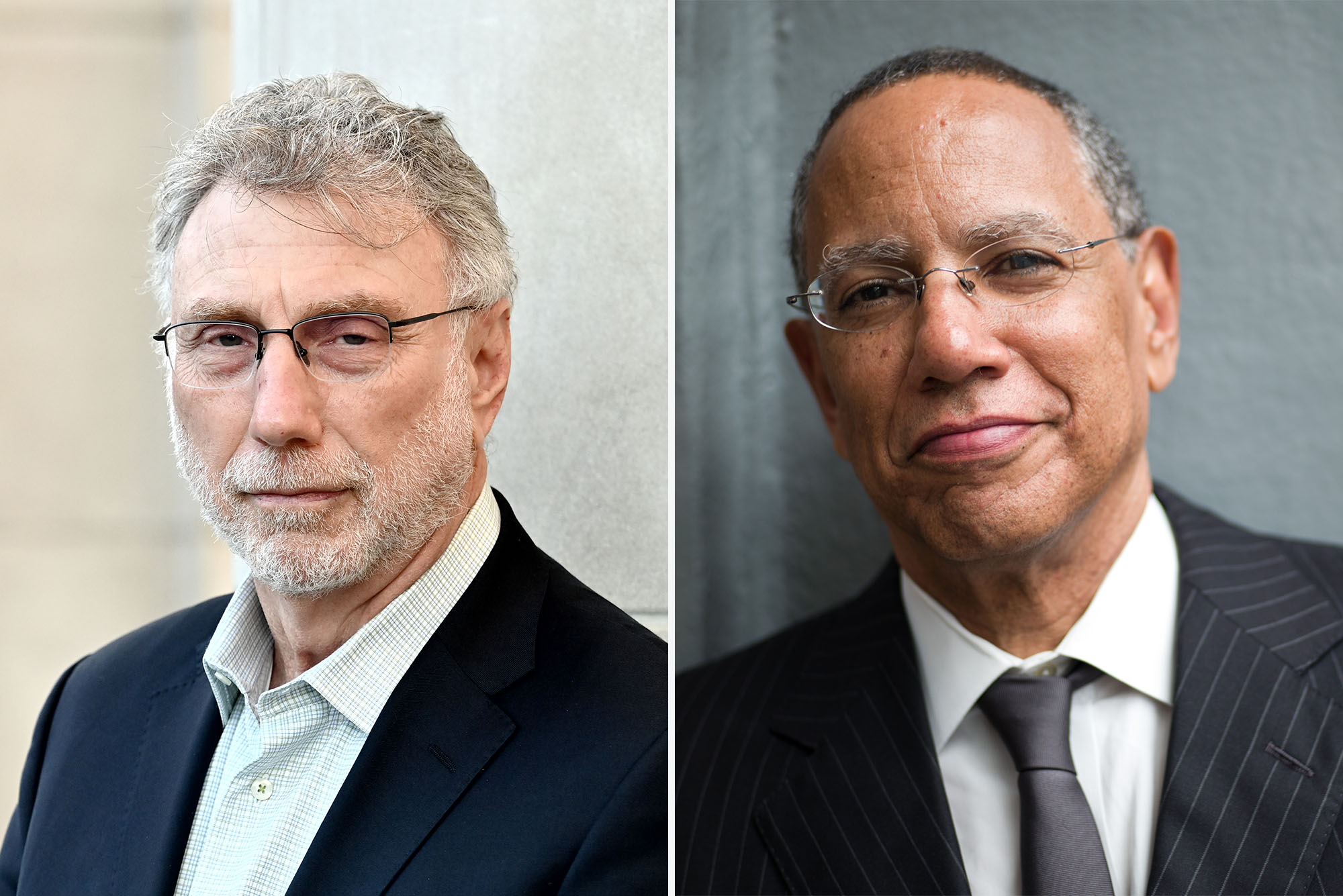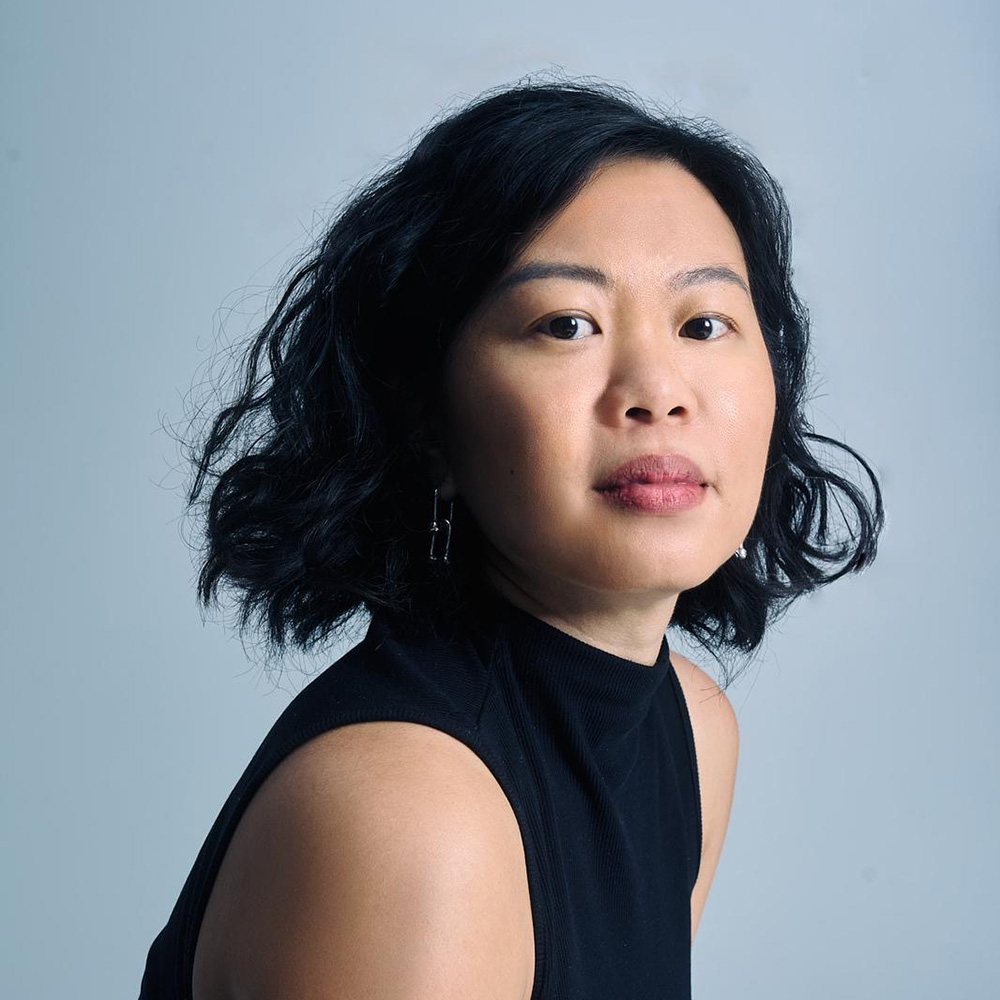COM’s Power of Narrative Conference Draws Major Media Names
Marty Baron, former Boston Globe and Washington Post executive editor, and Dean Baquet, former New York Times executive editor, among this year’s speakers

Headline speakers at BU’s annual Power of Narrative Conference include Marty Baron (left), former executive editor of the Boston Globe and the Washington Post, and Dean Baquet, former executive editor of the New York Times. Baquet will receive COM’s Hugo Shong Lifetime Journalism Achievement Award during the event. Baron photo by Marvin Joseph/The Washington Post via Getty Images; Baquet photo courtesy of the College of Communication
COM’s Power of Narrative Conference Draws Major Media Names
Marty Baron, former Boston Globe and Washington Post executive editor, and Dean Baquet, former New York Times executive editor, among this year’s speakers
The editor who led the Boston Globe investigation of pedophile Catholic clergy and a New York Times former executive editor top the marquee speaking roster for this year’s Power of Narrative Conference at Boston University.
Marty Baron was the Globe’s top editor for roughly 11 years, leading the paper to a half dozen Pulitzers, among them for coverage of the Catholic Church’s coverup of sex abuse by clergy, before becoming executive editor at the Washington Post. He retired in early 2021, and his book Collision of Power: Trump, Bezos, and The Washington Post (Flatiron Books, October 2023) published last fall. Dean Baquet, currently heading the Times investigative fellowship, was the paper’s executive editor from 2014 to 2022. The two men were also colleagues for a brief period in the late 1990s at the Times.
The annual conference, cosponsored and hosted by the College of Communication, runs March 22 and 23 at the George Sherman Union, 775 Commonwealth Ave. Registration is required and available on two separate sites, one for BU students and the second for other attendees. Cosponsors include the Boston Globe, WBUR (the University’s National Public Radio station), and the Sunday Long Read newsletter.
This year’s conference occurs at a time of downsizing or shuttering of many traditional media, with an average of two American newspapers folding every week.
“Nonfiction narrative has never been more essential, for the audience as well as for storytelling platforms,” says conference director Mitchell Zuckoff, BU’s Sumner F. Redstone Professor in Narrative Studies and a onetime Boston Globe reporter. “Deeply reported, expertly crafted narratives help people make sense of the complex forces reshaping the world, which in turn allows them to make informed choices in their lives and in the voting booth.
Nonfiction narrative has never been more essential, for the audience as well as for storytelling platforms.
“From a business standpoint, as media organizations continue to face stiff economic headwinds and a loss of advertising revenue, narrative stories engage readers, viewers, and listeners more deeply and completely than any other storytelling form. That keeps people subscribing and coming back, which is the one media business model that’s working nowadays.”
Zuckoff says that by including keynote talks from Baron and National Public Radio’s White House correspondent Asma Khalid, “we’re focusing extra election-year attention on national political issues.” Other speakers “run the gamut from historical narratives”—for example, the Globe team that recently chronicled Charles Stuart’s infamous 1989 murder of his wife, which he tried to pin on a Black man—“to subject area experts like John Woodrow Cox of the [Washington] Post, for his coverage of school shootings.”
“We’re also continuing our practice of including speakers from every type of storytelling platform,” Zuckoff adds, “to help conference attendees and BU students choose the right tools for the stories they want to tell.”
The Globe sex abuse investigation that Baron led—immortalized in the Oscar-winning film Spotlight (Liev Schreiber played Baron)—preceded his eight-plus years as executive editor of the Washington Post. There, he oversaw coverage that won 11 Pulitzers, including for the 2021 insurrection at the Capitol, a probe of Donald Trump’s 2016 presidential campaign, and an investigation into the National Security Agency.

For his part, Baquet led the Times to 18 Pulitzers. Under his tenure the paper experienced substantial subscriber growth as well, in an era of declining readers and advertising for newspapers. Now read by 100 million people monthly, the Times racked up almost seven million print and digital subscriptions by the end of 2021.
Baquet will receive one of two Hugo Shong Awards on the last day of the conference. (The second winner is NPR international correspondent Emily Feng.) The Shong Awards, bestowed annually by COM’s journalism department, recognize one journalist who exemplifies “the highest quality of reporting and analysis, outstanding accomplishments and ethical standards,” and another whose coverage of Asia demonstrates “the highest standards of international journalism.”
The awards are named for BU trustee Hugo Shong (COM’87), who has created and published more than 40 magazines in China and Vietnam. Shong is founding chairman of investment and asset management firm IDG Capital.
Among the 33 conference speakers are Joan Donovan, a COM assistant professor of journalism and emerging media studies and a nationally known expert on disinformation campaigns, and Boston Globe columnist Adrian Walker.
Find a complete list of this year’s speakers and the conference schedule here.
Comments & Discussion
Boston University moderates comments to facilitate an informed, substantive, civil conversation. Abusive, profane, self-promotional, misleading, incoherent or off-topic comments will be rejected. Moderators are staffed during regular business hours (EST) and can only accept comments written in English. Statistics or facts must include a citation or a link to the citation.